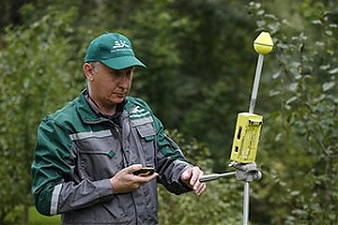Construction, Ecology, Energy, EU – Baltic States, EU – CIS, Gas, Markets and Companies, Russia
International Internet Magazine. Baltic States news & analytics
Wednesday, 24.04.2024, 21:23
Public Consultation Process now begins in Denmark
 Print version
Print version |
|---|
The public, including the Danish authorities and
organizations, can now provide comments or raise their questions to the Danish
EIA report through the Danish Energy Agency until 19 September, 2017. For
further information please visit the website of the Danish Energy Agency www.ens.dk. Nord Stream 2 AG has also submitted the construction permit
application as well as the Espoo report (a study on the transboundary impacts
on the environment) to the Danish Energy Agency.
The Danish public participation pertains to Nord Stream 2
AG’s planned offshore pipelines that will stretch for approximately 139 km in
Danish territorial waters and the exclusive economic zone. The planned
pipelines will run broadly parallel to the existing Nord Stream pipelines.
“The start of national and international public
consultations in Denmark and other countries around the Baltic Sea is an
important milestone for the project. Interested stakeholders will be able to
file their comments to Nord Stream 2 or take the opportunity to raise their
questions during the various public hearings scheduled in different countries
around the Baltic Sea,” said Nord Stream
2’s Head of Permitting, Simon
Bonnell.
Permit Application
Nord Stream 2 AG submitted a permit application for the construction of a new pipeline system to the Danish Energy Agency, on 3 April, 2017. The permit application includes a comprehensive Environmental Impact Assessment (EIA) report. This EIA describes the main characteristics and technical solutions of the planned pipeline system, as well as detailed assessments of potential impacts on physio-chemical, biological and socio-economic environment in the Danish sector.
The report also includes an assessment of potential transboundary impacts
which may arise from activities to be carried out in Denmark, and identifies
measures to prevent and mitigate potential adverse environmental impacts.
Later, in 2019, Nord
Stream 2 AG will apply for a separate permit for the operation of the
pipelines on the Danish continental shelf.
Minimal Environmental Impact
Based on the thorough assessment of potential impacts, as
well as the experience gathered during the construction and operation of the Nord
Stream pipelines (including the results of environmental monitoring), the
planned pipeline system in Danish waters is assessed to have minimal
environmental impacts. Nord Stream 2 AG has been fully committed to finding
safe, as well as environmental-friendly solutions throughout the planning
phase, and will continue to do so during the construction and operational phase
of the planned pipeline system.
For additional information regarding the Nord Stream 2
project and the Danish permitting process please visit: https://www.nord-stream2.com/dk/permitting-denmark/.
As a project in a transboundary context, Nord Stream 2 needs
permits and is subject to international conventions and national legislation in
each of the countries through which it passes – Russia, Finland, Sweden,
Denmark, and Germany. The permitting process progresses on schedule: Sweden was
the first country where Nord Stream 2 has submitted permit applications already
in autumn 2016. Finland, Germany and Denmark followed in April 2017. Four
public hearings have already been held in Sweden and Finland. In summer 2017,
Germany, Russia and Denmark will follow suit with their own hearings.
International consultations on transboundary impacts will furthermore be
carried out between the Parties of Origin (permitting countries) and the
Affected Parties (neighbouring coastal states of the Baltic Sea, i.e. Latvia,
Estonia, Lithuania and Poland). Following the submission of the Espoo Report at
the beginning of April 2017, four consultation meetings have already been held
in the Baltic States and Poland in May and June. The project is proceeding
within the timeline and we expect to receive all permits by the end of 2017 or
the beginning of 2018.








 «The Baltic Course» Is Sold and Stays in Business!
«The Baltic Course» Is Sold and Stays in Business!

